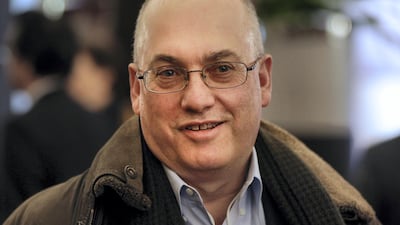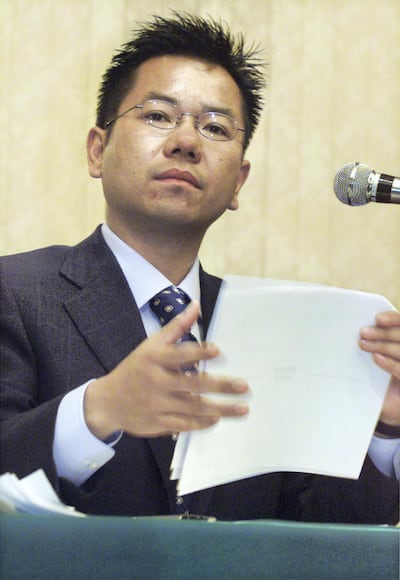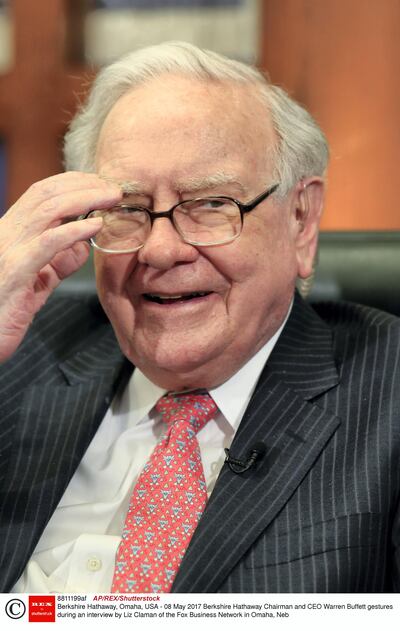Steve Cohen
Officially, Steve Cohen is undecided about starting a hedge fund. Unofficially, he’s got marketers poised to sign up clients and take in money early next year.
ShoreBridge Capital Partners, the company hired last year to gauge interest in a such a fund, has told prospective clients to expect a trove of marketing materials in the next several weeks, according to people familiar with the plans. It will include due diligence documents, track records and other information investors need to decide whether they will pony up cash for the new firm, Stamford Harbor Capital.
It is the clearest evidence yet that Mr Cohen is planning a comeback after being barred from managing outside capital until January 1, 2018. And it comes at an opportune time. The billionaire’s returns are just beginning to rebound after 18 months of barely making money at his family office, Point 72 Asset Management. He’s now up about 5 per cent year to date, according to people familiar with the performance.
Although most hedge fund investors expect billions to flow to the new firm, it’s less clear whether Mr Cohen can regain his superstar status of about 30 per cent annualised returns achieved when he ran SAC Capital Advisors. Since returning client money in the beginning of 2014, markets have become increasingly dominated by passive investing, a trend that many a stock-picker has blamed for lacklustre performance. Mr Cohen, 61, has also lost some seasoned portfolio managers when he became a family office.
“Markets have changed and there are still a lot of questions around how the new firm will be structured,” said Brad Alford, a former SAC investor who runs Alpha Capital Management, a consultant search service in Atlanta. “It remains to be seen whether he can rebuild to his former glory.”
SAC pleaded guilty to securities fraud in 2013, and agreed to pay a record $1.8 billion fine and convert to a family office. Mr Cohen wasn’t charged with wrongdoing. A Cohen spokesman said last year that Stamford Harbor wouldn’t seek external money before the terms of the settlement lapse.
Yasumitsu Shigeta
Yasumitsu Shigeta, the founder and chairman of Hikari Tsushin., was once among the world’s richest persons, before earnings disasters caused the company’s shares to sink 99 per cent in 2000. Almost two decades later, some investors are having a second look at the Japanese company, and recent market moves suggest they like what they see.
Shares of the office-equipment seller have jumped 24 per cent this year to the highest since 2000, outperforming the Topix stock index’s 5 per cent gain. Three of four analysts surveyed by Bloomberg have a buy recommendation on its equity. In the bond market, Hikari Tsushin sold its longest-ever notes this month, and the issuance amount was increased due to strong investor demand.
Shigeta’s company has come a long way. A darling of the stock market in the 1990s, Hikari Tsushin was considered one of Japan’s promising new firms along with SoftBank, until it faced a crisis in 2000: its stock sank as its mobile phone sales business unexpectedly lost money. Now the market is bullish once again toward the seller of everything from copiers to office water servers to mobiles, as equity investors cheer its rising profits and regular shareholder payouts, while bond buyers appreciate the extra yields on its notes.
Hikari Tsushin is “a very exciting stock from our perspective,” said Richard Kaye, a portfolio adviser at a Japan unit of Comgest Global Investors SAS, which has about $100m invested in the company’s stock. The shares are cheap, the company’s business model is attractive and it’s growing steadily, according to Mr Kaye.
Hikari Tsushin’s net income climbed to 39bn yen ($358m) in the 12 months ended March 31, from 7.8bn yen five years earlier. Mr Kaye expects the firm’s annual net profit to break above 50bn yen in the coming five years. The earnings recovery follows years of restructuring that involved the company closing mobile-phone retail outlets, while it expanded sales to corporate clients including office automation and also started selling insurance.
Hikari Tsushin’s credit rating was cut to junk in 2000 by Japan’s Rating & Investment Information, which also cited the firm’s reliance on internet shares and related companies for its financing.
The company began aggressive restructuring that started to pay off in a few years. It returned to a net profit in the year ended March 2004 and its income grew from there.
Mr Shigeta, whose net worth was $39.45bn in February 2000, now has $4.3bn, according to the Bloomberg Billionaires Index.
Warren Buffett
Warren Buffett, the billionaire chairman and chief executive of Berkshire Hathaway, said the rally in markets over the last several years has made it harder to find bargains, but that stocks remain his choice over bonds.
When asked why cash has been piling up at Berkshire, he told Bloomberg Television’s David Westin, “It tells us stocks aren’t as cheap as they’ve been most of the time.” Buying shares after the 2008 financial crisis, Buffett said, was like “shooting fish in a barrel.”
In a separate interview with CNBC, the Berkshire chief said he continued buying stock in Apple. this year, even as one of his deputies was selling. And he tamped down on speculation that Kraft Heinz would pursue a takeover of Mondelez International Berkshire is the largest shareholder in Kraft Heinz and controls the company along with buyout firm 3G Capital.
Buffett, 87, built Berkshire into a sprawling conglomerate over the past five decades through shrewd stock picks and takeovers. The company’s dozens of subsidiaries now include insurers, manufacturers, retailers and a railroad. Its stock portfolio - which includes multibillion-dollar stakes in companies like Wells Fargo & Co.and Coca Cola - was valued at more than $135bn at the end of June.
Stocks “have got less attractive as they’ve gone along,” Buffett told Westin. “They’re still very attractive compared to bonds” because interest rates are so low.
The S&P 500 is in its second-longest bull market on record, having more than tripled since March 2009 in a rally that has added almost $19tn to share values. In 2017 alone the gauge has closed at record highs 30 times.
Buffett has been finding some smaller investments this year. In June, he threw a lifeline to Home Capital Group, an embattled Canadian home lender. Its shareholders are scheduled to vote on a second part of that transaction next month, which would increase Berkshire’s stake from almost 20 per cent to 38 per cent.
Rakesh Jhunjhunwala and Radhakishan Damani
The Metropolitan Stock Exchange of India plans to woo brokerages to execute large stock trades on its venue, as a new management team tries to breathe life into a bourse that has floundered for a decade.
Backed by billionaires Rakesh Jhunjhunwala and Radhakishan Damani, MSEI aims to wade into the block deals segment, which is worth as much as 5tn rupees ($78bn), according to chief executive Udai Kumar. India’s regulator defines a block as a single trade having at least 500,000 shares or a minimum value of 50 million rupees. Money managers like dealing in large sizes because it ensures transactions are done before the market can hear about them and react by raising or lowering prices.
“We are telling institutional investors to come to our platform - there will be no slippages or price impact,” said Mr Kumar, who was named chief executive last year to turn around the bourse. The MSEI is in talks with half a dozen large investment banks to bring in such deals, he said.
That’s easier said than done. Despite starting in 2008, MSEI has failed to seriously threaten its rivals. It had a 4.3 per cent share of currency derivatives at the end of March, and barely exists in India’s $2tn equity market, which is dominated by the National Stock Exchange of India and BSE.
The company has struggled to make a mark since a payment default in 2013 at a related exchange forced the original founders to sell. A clutch of financial institutions now own more than 34 per cent of MSEI, as do investors including Mr Jhunjhunwala, Mr Damani and Nemish Shah, according to bourse’s website.
Efforts are being made to fix the “erosion of trust” through investor education initiatives, broker events and media campaigns, Mr Kumar said.
The exchange is also developing short-term debt instruments to help mutual funds and insurance companies hedge their portfolios, Mr Kumar said in an interview at his office in Mumbai, without providing details. Products launches in currency, interest rate futures and corporate bonds are also planned, he added.
The MSEI got 250 companies to list exclusively on its venue - most of whom migrated from the 15 regional bourses the market regulator shut down three years ago - and slashed fees and transaction costs to levels it claims are the lowest in the country.
The exchange must also allow investors to buy and sell investment products on its venue to boost revenue, broker Mehta said. Both BSE and NSE run Web-based order routing systems that make it easier for investors to purchase and redeem fund units on the bourses.
“It will help it become relevant and turn profitable sooner,” she said.
The MSEI, which has been making losses, expects to return to profitability by March 2020, according to the exchange. The bourse, which raised a combined 1.73bn rupees via two rights issues in the past two years, is looking to garner more through the same route to bolster its balance sheet and capitalise its subsidiary, Mr Kumar said.





